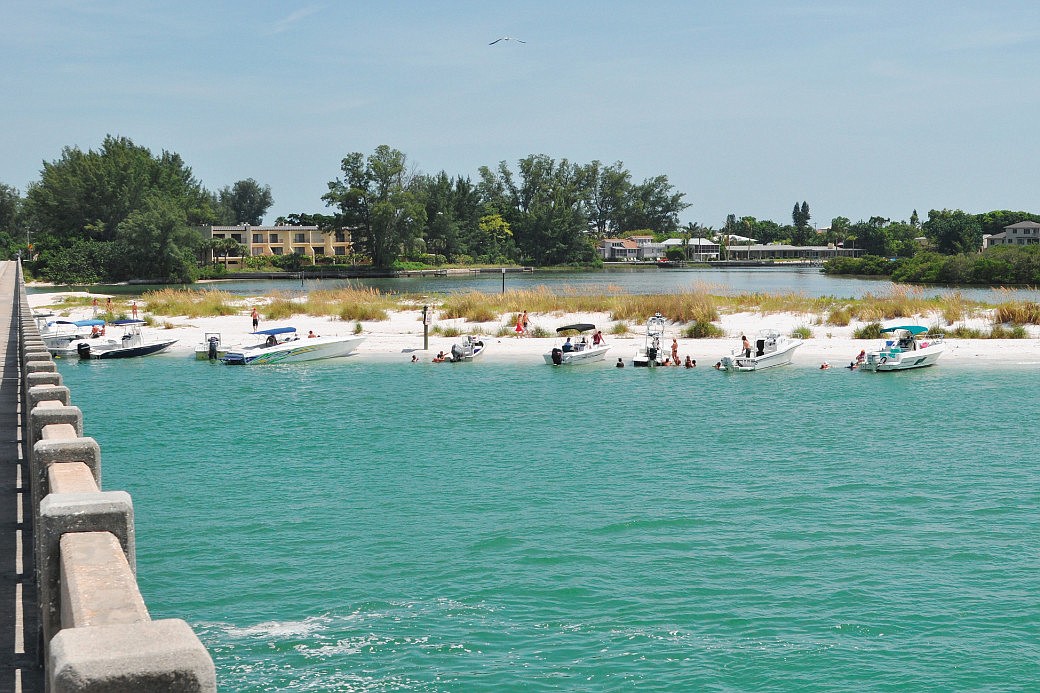- July 26, 2024
-
-
Loading

Loading

As plans to stabilize Longboat Pass and renourish northern Longboat Key beaches await state approval, members of the Siesta Key Association are looking for support to block them.
The organization has found a savior in Manatee County Commissioner Joe McClash but faces opposition from the town of Longboat Key and Manatee County, as well as research from several organizations. And an April 27 meeting of inlet project stakeholders with the Florida Department of Environmental Protection could unlock state funding, making a defense strategy for SKA improbable.
Peter van Roekens, vice president of the Siesta Key Association and founder of the Sarasota Boaters Coalition, said three groins included in the Longboat Key Inlet Management plan threaten to set the flow of Big Pass askew and possibly accelerate erosion of Lido and Siesta beaches.
“People want to put groins in, but they’re very dangerous,” he said. “There are always unintended consequences.”
The intended consequences are to trap sand drawn southward slowing sediment displacement. The problem, van Roekens said, is beaches further south don’t receive natural sand accumulation — taking one region’s erosion woes and passing them on.
The West Coast Inlet Navigation District, which helps plan and implement waterway projects, approved and endorsed the plan. It also is backed by research conducted by the U.S. Army Corps of Engineers and Coastal Planning & Engineering Inc.
A deeper concern for SKA is that an approval could fast-track plans being floated by the city of Sarasota and the Corps of Engineers for Lido renourishment. Big Pass and New Pass are the two inlets that are being considered for dredging, further amplifying potential negative consequences for Siesta Key.
Sarasota County Commissioner Nora Patterson, who also serves as the treasurer of WCIND, said the Corps of Engineers is studying the effects of potential dredging on the two inlets. However, she said Longboat’s inlet project will have little bearing on the study or solutions suggested for that potential project.
“These groins don’t look like they will damage Lido,” she said.
Two sand traps cut for dredging Longboat Pass also are included in the plan, under the supervision of WCIND. They could yield about 90,000-cubic-yards of sand to renourish Longboat beaches, according to an April 2 permit filed by the organization.
The Manatee County commission voted 6-1 in favor of the inlet management plan March 27, with one dissenting vote coming McClash. Van Roekens and McClash have been coordinating an effort to raise public awareness about the project, which also has the support of Longboat Key commissioners.
A Feb. 10 correspondence between Manatee Deputy County Attorney Rodney Wade and McClash explored questions about the deed binding Beer Can Island to the county. One of the restrictions outlined in the document is that the property be kept in its “natural state” and that “no man-made alterations or structures shall be constructed or placed on the property.” The terminal groin bound for the island could be a violation, the letter stated.
McClash also has petitioned the Corps of Engineers for a public hearing on the inlet-management plan and an environmental-impact statement to comply with the National Environmental Protection Act, due to its use of federal funds.
Laird Wreford, the coastal resources manager for Sarasota County, said conflict over beach renourishment is inevitable and will likely continue as Big Pass and New Pass are considered for a similar project on Lido Key.
“In the end, one man’s accumulation of sand is another man’s depletion of sand,” Wreford said.